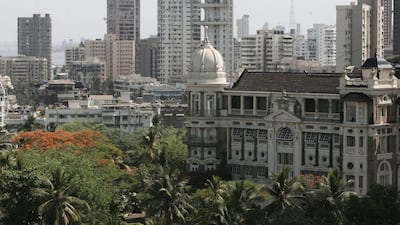The Indian government plans to raise billions of rupees by auctioning off “enemy properties”, houses and land left behind by people who moved to Pakistan or China in the wake of India’s wars with those countries.
Roughly 9,280 such properties were abandoned, or given to relatives, by people who became Pakistani nationals after wars in 1947, 1965 and 1971. Similarly, people who went to China during or after the 1962 war left behind around 126 properties.
On Monday, the home ministry issued guidelines to govern the sale process, and it asked the Custodian of Enemy Properties (CEP), a government agency, to submit a list of assets within three months.
District-level committees will assess the precise values of the properties, based on real-estate prices in the area. But Hansraj Gangaram Ahir, the junior home minister, had told parliament last year that the government’s estimate of the properties’ aggregated value ran to 1 trillion rupees.
But the government’s classification of these properties is not without controversy, and some lawyers claim it discriminates against Indian Muslims.
When the Enemy Property Ordinance was issued in 1968, India had already fought wars with India and China. The CEP took over management of these properties, essentially to ensure that they could not be used to aid hostile powers, said Aishwarya Pandit, who teaches at Jindal Global Law School in Sonipat and who studies laws dealing with enemy properties.
"There was precedent in international law for this kind of measure," Ms Pandit told The National. "The US and the UK did the same thing during the Second World War, with properties owned by those who went to the Axis countries."
The premise of such laws has always been that properties would be returned after hostilities end, Ms Pandit said, but in reality, that has never happened.
Successive Indian governments renewed the ordinance after 1968. Last year, however, India’s parliament — dominated by Prime Minister Narendra Modi’s Bharatiya Janata Party (BJP) — replaced the ordinance with an act that made the original stipulations even more stringent.
The law now recognises as enemy property any land or house that a person lawfully transferred to heirs or relatives before moving to Pakistan or China. A father who chose to relocate from Delhi to Karachi, for instance, may have passed on his Delhi residence to his son before doing so. But even if the son continued to live on in Delhi as an Indian citizen, never even setting foot in Pakistan, his house can be considered enemy property.
The new law did not go unchallenged. In parliament, while debating over this provision, the senior Congress politician Shashi Tharoor argued that it tries to “explicitly create two kinds of Indian citizens … If somehow there are two categories of Indian citizens and one category does not have the rights of the other, that is a very dangerous practice".
Last year, another Congress parliamentarian, Husain Dalwai, filed a petition in the Supreme Court, challenging the law. Mr Dalwai’s lawyer, Anand Grover, told Reuters that the law’s purpose “seems to be to deprive Muslims of their right to ancestral property that the state seized".
The guidelines issued on Monday suggest that while vacant enemy properties may be auctioned directly or converted to government use, properties occupied by heirs may be sold back to them for “a percentage of the valuation".
Mr Dalwai’s petition was dismissed. But another still-pending petition, filed by Mohammad Amir Khan, may hold a ray of hope for those who hope to hold on to their ancestral property.
Mr Khan’s father, the former king of the Mahmudabad region of Uttar Pradesh, went from India to Iraq in 1947, and then on to Pakistan, where he became a citizen in 1957. Mr Khan inherited the title of “Raja” and also the royal properties: 936 of them, across north India.
When the CEP took over these properties — against the letter of the previous ordinance — Mr Khan sued and fought that lawsuit for decades. In 2005, the Supreme Court confirmed that Mr Khan, as an Indian citizen, was entitled to regain his properties.
But they were never returned to him. Further, the new law — which Mr Khan called “dictatorial” and “arbitrary” — precludes any possibility that he will ever get back his properties. His petition, filed in the Supreme Court, hopes to persuade judges that the new law contradicts the 2005 court decision in his favour.
Ms Pandit said she did not hold much hope for Mr Khan. “In most court cases about enemy property, the property hasn’t been returned,” she said. “I don’t think this can be challenged with any success.”

